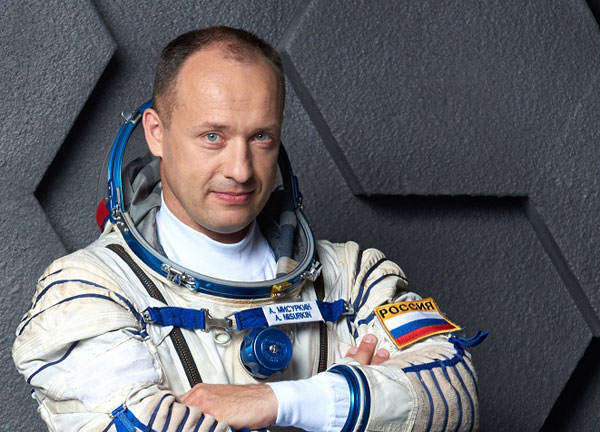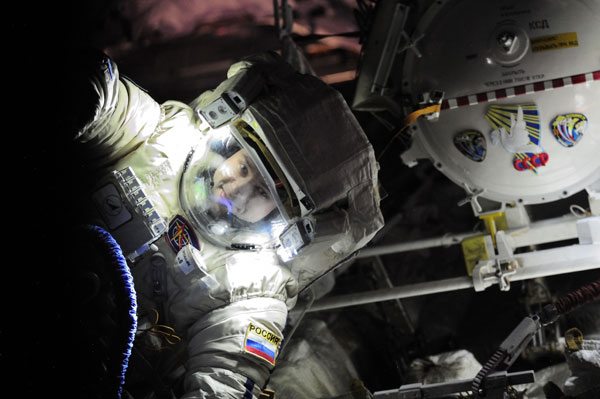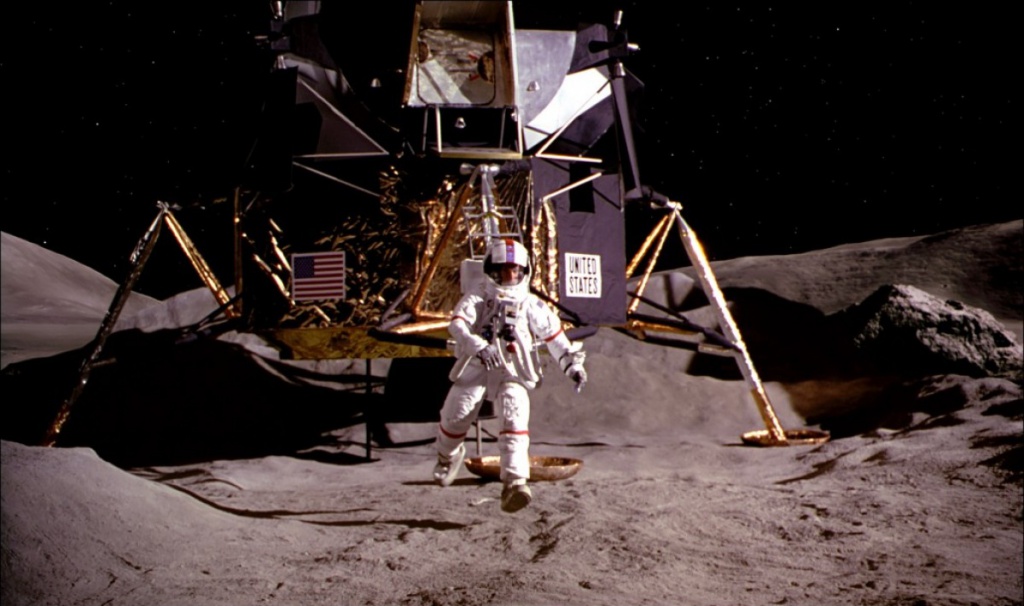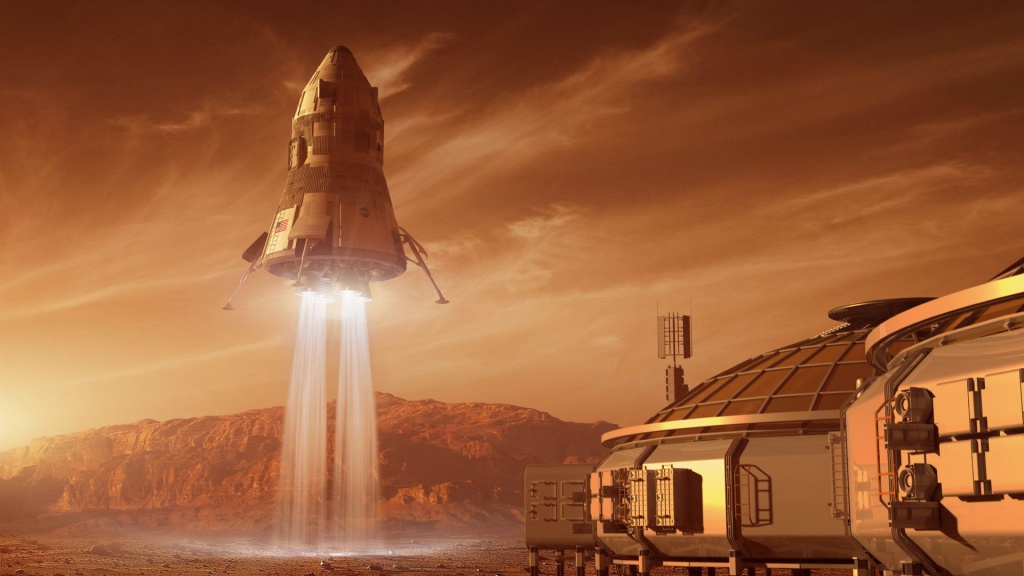Alexander Misurkin, astronaut: about flights to Mars, team work and film mistakes
One of the headliners of IMG Show-2019 conference was the astronaut, Hero of Russia Alexander Misurkin. His professional biography includes two flights to the ISS, several space walks and the first ever badminton championship in the outer space. At IMGS conference Alexander shared his experience in team building and revealed several professional secrets of work in a stressful situation. In his interview to ABT-ACTE Russia he also spoke about special aspects of life and work in the International Space Station and explained why badminton is better than football, and what we still lack in order to go to Mars.

About physical training
- Alexander, many people think that cosmonauts are busy only with flights and training. But I know, for example, that not long ago you returned from a badminton championship that was held in Oryol. Tell us what kind of championship it was and in what capacity you took part in it.
In Oryol two All-Russian badminton championships were held at the same time: "Orlyonok" tournament for children under 11 years and the junior Grand Prix*** tournament (the highest tournament rating) for "starters" from 13 to 19 years. There were more than 300 participants.
The tournaments were organized by the Badminton Federation of Oryol Region that is part of the National Badminton Federation of Russia. I am the founder and the current President of the Badminton Federation of Oryol Region. It was the main exam for us after 2 years of our existence, and I am convinced we have done as much over this time as is usually done over a ten-year period on average. 8 medals that our team won at the previous tournaments were the indicators of our work.
- Badminton is not the most popular kind of sport. Why did you start doing it and pay attention to it?
To start with, this kind of sport was included into the physical training program of the very first group of cosmonauts by Sergey Pavlovich Korolyov himself. For a long time badminton was one of the training elements of Soviet, and from mid-1990s to the present – also of Russian cosmonauts.
I regret I started playing it very late, only when I was selected for the cosmonaut squad in 2007. Badminton is one of the most energy-intensive sports, along with football, hockey and boxing. But at the same time it is the least traumatic of all the above mentioned sports.
I once asked one young guy "why did you go to badminton, and not to football, for example?" And he said "Yes, I played football, but when I had three fractures in a year, I thought it was a sign."
And it really is - in badminton there is no immediate physical contact, so there are significantly fewer chances to get injured than in boxing, hockey, etc. At the same time the birdie is the fastest sports item. The officially recorded birdie speed record is 493 km/h. Of course, it does not mean that everyone plays so quickly, but in badminton we have a broken rhythm of movements, running, jumping up and sidewise. That 's why it's an extremely intensive sport.
In space, for example, we have an athletic simulator that allows us to train many groups of muscles, but you get bored of lifting this metalware every day. And when there is game excitement, you do not waste psychological energy, you also relax, even though you are loaded physically.
- As fas as I understand, charitable activity is also connected with badminton.
There are a couple of charitable projects I support, but the main thing I am focused on is the development of children's and mass sport, badminton. For me badminton is not even sport - it is a lifestyle that lets me make it longer and improve its quality, and I try to give people an opportunity to learn about it, to try and, if they wish, to start training. However, the search of funds for development requires the most effort and time. We should say that this activity became possible mainly to charity givers who believed me and in me. I bow down before them for it.
About the first badminton championship on the ISS
- You initiated the first badminton championship in outer space on the ISS. How did this idea appear?
It was my second flight to the ISS. And just before the start I thought about creating the Badminton Federation of the Oryol region. I got engaged in organizing activities and realized that, as you rightly mentioned, badminton was not popular enough in our country and many people do not perceive it as a sport, despite the fact that it has been an Olympic sport for more than 20 years. So partially, it was the desire to draw attention to badminton as a sport. And the rest was only a mere formality.
- What was the most difficult in the organization of a championship like this? After all, it is held in the outer space.
The hardest thing was to bring sports equipment to the ISS. We took the largest module, tried to make it as empty as possible on our legal weekend on January 1, 2018. However, we didn't notice one computer. And as it shoud be, the birdie hit its screen, and the computer then stopped working. But we were forgiven for the first time.
About team and psychology
- The ISS is a confined space in which people who are not familiar to each other live for many months. How do you prepare to the flight to be a real team on board?
First, each of us undergoes serious psychological selection at the stage of admission to the cosmonaut unit. And here personal psychological qualities are important, they allow us to work as a team. People who do not have team work skills do not pass this selection stage, as a rule. And then the experience of collaborative effort in tough conditions is added to the breeding ground we already have.
The crew assigned to a particular flight is trained for 2 years, individually and together. There is no course on teambuilding itself, but the mere fact that the whole crew completes a survival course, is, as people often say nowadays, a serious step out of the comfort zone, where you see the person, communicate with him, adapt to each other and change from a simple acquaintance into a close-knit team.
- Apart from the skill to live and work in difficult conditions, are there any other criteria of psychological selection of cosmonauts?
Absolutely right - it is the criterion "if you want to lead - know how to obey”. This motto should be followed by all the people who are expected to work in a team. I learned it from one of my senior colleagues and try to use it in my life. It is worth its weight in gold if you know how to take over the leadership and make decisions, and at the same time in another situation to step aside and to give someone else the opportunity to be the leader. This is another factor that brings the team together.
- You were the expedition commander of your second flight. What does the commander 's responsibility include in general?
Actually, we all are approximately equal on board of the ISS. That is, any work, from scientific experiments to toilet repair, can go to anyone, and everyone is ready for it. The task of a commander in daily life is to maintain order, friendly relations in the crew. But if there is any non-routine or emergency situation, there are other rules and another plan of action, and the commander`s role is not only to maintain the team spirit, but also to guide the crew through this emergency situation, to make decisions, including the decision to leave the station, if circumstances require it.
- And have you had such situations?
I was lucky not to have such situations during my stay on the ISS.
- And are there any conflicts on ISS, or are they impossible in general? After all, the people are different, from different countries, to start with.
As for ethnic conflicts, I have not seen any, thank God. As for personal relations, cosmonauts are not robots, they are humans as anyone else. Therefore, given the stressful conditions of life and work, conflicts are inevitable. The point is to be able to act in the right way and to solve the situation.
There was a good example, when two astronauts had completely different points of view and approximately equal experience, there were no discussions or argument - everyone understood that each one would remain unconvinced, but nevertheless, they talked to each other with respect, without irritation or shouting, and at the end one of them said "I love you, brother." This is an example of how any conflict should be resolved. This is not always the case, but I am glad that this was the case in my crew.

About science, the Moon and the challenges of the outer space
- What did you do on the ISS? What do people do in space?
The vast majority of experiments I was involved in were medical experiments. Those that study the problem of human existence in space. This is the activity that will allow us to shift from the stage of outer space conquering to the stage of its exploration.
For example, we know already that during the space flight calcium begins to wash out of the bone tissue, there is muscular tissue dystrophy, and we even know how to eliminate these factors quite efficiently. But we still don 't know the mechanisms that trigger these processes. Therefore, now scientists are conducting the experiment "Prevention-2" I participated in, and its aim is to study the core mechanisms of our body.
Another serious issue is radiation protection. Today we are still flying on the low Earth orbit and are protected from increased radiation by the magnetic field of the Earth. As soon as we set ourselves the goal of flying to the moon, at least, one of the first problems that arises in this case is protection from radiation. At the moment, the best way of protection is, oddly enough, to predict solar activity and to make the flight during the time period when the sun activity is minimal. As you understand, this protection is rather hypothetical. When we discover other ways, it will be a new word in the life of mankind on the Earth.
- In the context of this story, it is quite interesting, how the astronauts who were on the moon were protected from radiation...
The astronauts who were on the moon made a very short flight. If the exposure time is relatively short, nothing bad will happen. The statistics we have at the moment is obviously insufficient, but it suggests that this is acceptable. And if the current expeditions to the ISS last for 160-200 days, flights to the near-moon orbit for the construction of a station (and such projects are seriously discussed, and Russia may also take part in them) are already reduced to 60 days.
- But you go into the outer space. It there no radiation there?
Indeed, there is, and it's higher than inside the station. But in fact, when we go into the outer space next to the station, we are still protected by the magnetic field of the Earth. Now we are flying at the height of about 400 km, and the lower border of radiation is 600 km. And that's where the radiation is extremely high!

About film mistakes and dreams
- You have been in the outer space several times and even set two records of the length of stay. And how is the walk into the outer space done: what do you do there and the main question, what do you feel when you are there? Is there an impression of being a tiny grain of sand in the vast universe?
As a rule, space exits have two global objectives. The first is to repair the equipment of the station, which is located on the outer surface. The second is scientific work and, again, we either need to take out some scientific equipment and to install it, or the opposite - to remove it.
And as for the feelings. Of course, I would like to go into the outer space one day, like in the film "Passengers" that was on the screens not long ago: to make a flight, to enjoy the stars and the beauty...
- … badminton …
... Yes, yes, to play badminton. But nowadays we work only on the surface of the station and cannot fly away from it. Because the safety ropes we are fixed with to the elements of the station are about 1.5 meters long, and you are always within arm's reach from the surface of the station. There is no impression that you are in an empty space among stars (and sometimes we do not see stars if it is the sunny side of the Earth). Besides, you feel a very heavy burden of responsibility. Because everyone hopes for you, and no one but you can do the job.
It was only once in my four space walks that I had about 5 minutes when I could "stand still" looking around and thinking. And when I saw the planet that was moving very quickly very far-far away, under my feet, at this moment I had shivers running up and down, of course. Baron Munchausen flew on a cannonball, and I am flying even without a cannonball.
- If we go back to movies. Is there a film about space and space flights about which you could say that it really reflects the reality, or on the contrary – that it is one big blooper?
I like the film “Apollo 13” very much. When I first watched it, I was a cadet of a military school, I watch it with great pleasure even now and I see no mistakes from the point of view of cosmonautics. When I watch this film, I have an impression that everything is real in it - there is not a single mistake that would be evident for me.
And when in some movies an astronaut puts out a fire in a spaceship and depressurizes it heroically at the same time, without putting on a space suit, and then closes the door, slightly groans, shakes himself and goes on... I always say that in The Star Wars, even Princess Leia couldn't survive being in the vacuum, and she was a jedi after all!
About Mars
- Nowadays the theme of Mars is very popular in films. When do you think we'll go there? I don't even ask whether we will go there or not – it is obvious that we will...
It`s a good question. I'm glad you understand. And I understand it, too. Moreover, I think there are some technical issues, of course, but today the more serious issues, the key questions are geopolitical ones. I am convinced that the humankind should go beyond the low orbit as a single civilization. I am sure that individual attempts of different countries (like stations in Antarctica - this one is Russian, and this one is American) really confirm that we as a civilization have not yet reached the stage of development when it is possible to explore space.
When you increase the scale and fly into space, you won't find there anyone more dear and close to you than any Homo Sapiens representative, regardless of skin color and eye shape. So I repeat again, the main issue is geopolitical. Besides, it's a matter of economy, of course. No matter how powerful the economy of a certain country is, the technical issues require huge resources - because it is always easier to do anything together than alone. This is why I don't think it is going to happen in the next 20 years.
- And what technical issues need to be solved to in order to fly to Mars?
The first is protection from radiation, as I have already said. Because there is no magnetic field on Mars, and nothing will protect us on its surface, as well as during the orbit-to-orbit flight. And the second problem is - when we return from a space flight, before the parachute opens, we need to reduce the first cosmic velocity, and it is as much as 7 km/s. It is easier to do it on the Earth, it has a dense atmosphere, and this speed is reduced as the result of friction against the atmosphere. And as for Mars, first, we approach it not at the first, but at the second cosmic velocity (and it is already 11 km/s). Second, we will have to bring there not only the landing section, but also the take-off module, as a minimum, in order to take off later - that is, we have a much larger mass. And third, the atmosphere on Mars is 100 times thinner than on the Earth. The problem is much more complicated: the speed of entry into the atmosphere is much higher, the weight of the apparatus is much larger, and the atmosphere is thinner.

About cosmonauts` workdays on the Earth
- Of course, flights are space pilots` main goal. But what do your ordinary days consist of, and you have much more of them than flights, as far as I understand?
We have a number of functional responsibilities between flights. First of all, it is necessary to maintain our professional skills. We continue to train at simulators, participate in special trainings, when, for example, technical equipment management skills are trained. There's special parachute practice. Its aim is to keep you ready for work in stressful conditions, when you have to make yourself think and act in situations when you are scared and when there is no time to think. Jet flights are another type of training.
Besides, we work with scientists in order to solve medical and biological problems, as well as with engineers of the rocket and space industry. In particular, I am glad to take part in the work on a new manned ship, which is now being developed in RCC Energia. I very much hope that it will be ready during my professional era.
- Are you ready to go to the ISS again?
When our country needs it … There is a certain priority with the account of experience, tasks, the number of flights made. But I hope I'll fly into space again, and more than once.
Interviewed by Olga Dedova
- Partners
-
Press
-
Logo ABT
-
 Download in PDF
(264Кб)
Download in PDF
(264Кб) -
 Download in EPS
(273Кб)
Download in EPS
(273Кб)
-
- Photo library
- Educational session
-
Logo ABT
- Hotels
